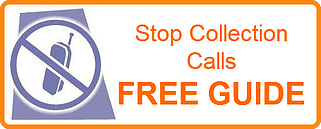Being in a financially stressful situation is bad enough, but then add to that a call or letter from a "so-called" debt collector that threatens fines and/or imprisonment can be happen! Here's what you need to know and what you can do about it:

Being in a situation where you just can not keep up with the payments due on your credit cards or other unsecured debts can be very stressful and fearful.
You have several options to help you get through this (which I'll talk about later), but it is very helpful if you have a basic understanding of how the debt collection process works...legally, that is!
Calls and letters
Once you start to fall behind in making at least the minimum payments required, you will start to get calls and/or letters. The original creditor usually starts with a letter saying something like"
"Your account is seriously past due and you must call us immediately to arrange repayment or your account may be charged off and turned over to a debt collector or attorney."
What the original creditor really wants is help you start making some kind of payments again. They really don't want to lose you as a customer or to have to charge off your account as a bad debt.
Most major credit cards or other lenders have in-house collection departments that will attempt to get you to pay.
JUST A WORD ABOUT STOPPING THE CALLS...
As long as your account is still with the original creditor, they have the right to call you in regards to that accounts.
Now, once that account is transferred or sold to a debt collector, then you can stop the calls.
I'll show you how is just a minute.
If you have the ability to get caught up and keep your account from being charged off and turned over to a debt collector, you should do so.
But, BEWARE of a so-called "Hardship Plan" offer!
Your creditor may offer you a 6 month, lower payment and/or interest to help you get "back on your feet".
These"Hardship Plans" are usually not in the consumer's best interest and you should really examine the offer before agreeing to it.
Account placed with a Debt Collector
After your account has been delinquent for about 3-4 months with no payments, most of the time, the creditor will transfer or sell your account to a debt collector.
Now, you start getting letters and calls from them, but now, you can at least put a stop to the calls. Here's how:
Now that your account is with a debt collector, you may be able to negotiate a SETTLEMENT for less than the full balance due.
A successful settlement depends on several factors and although not that easy to do, can be done. Here are some actual examples of a settlement:
Most debt collectors will work with you and will follow the law as laid out in the Fair Debt Collection Practices Act or FDCPA.
A debt collector can and cannot do certain things in an attempt to collect a debt and it would be worth your time to familiarize yourself with your rights under the FDCPA.
Beware of Debt Collection Scams!!!!!
Once in a while you may get a call, letter or email from a debt collection scam company.
One of our clients received an email recently from just such a company. It stated:
This letter is to notify you that we have received a Summons of Garnishment on your wages. This means that someone you owe money to has been awarded a judgment by the court for payment of the debt. The court has ordered us your employer to deduct 50% percent of your disposable earnings and make payment to the court on your behalf. The following applies to you:
Before you are arrested
If you pay in full, or make a part-payment before you are arrested, the warrant will be recalled and amended. However, it will be immediately re-issued if the debt is not paid in full.
After you are arrested
Once the warrant has been served, your only options are to serve the time in prison or pay the debt (plus costs) in full at the court house.
If you want to stop the garnishment deductions from your paycheck, you must obtain a release or pay the entire amount you owe, which you can pay with the help of Money Gram, Western Union, OneVanilla Prepaid Visa Card and American Express Prepaid Debit Card in order to close this account.
Sincerely,
Frank Dollard, Sr. Officer
UNITED STATES OF FEDERAL MANAGMENT ACELOAN.ONLIN
Not only was this a scam, but also illegal under the FDCPA!
Here is an article concerning this you should visit:
American Cash Services USA - Payday Loan Collection Scam
There are so many violations of the FDCPA, I don't know where to begin. But, let me point out a couple of the most blatant ones:
A debt collector cannot threaten that you will be arrested!
Yes, a debt collector may choose to FILE A CLAIM concerning your account.
You would receive a SUMMONS, and if a settlement could not be reached, a JUDGMENT may be awarded to the plaintiff (collector).
Then, and only then, could the plaintiff seek payment via wage garnishment or bank levy. But, even these have restrictions and limitations.
I've written several blogs about WHAT TO DO IF YOU RECEIVE A SUMMONS, and it may help you to check out.
If you ever receive a call, letter or email from a company like this, DO NOT REPLY, but contact your state's attorney general's office immediately.
If you live in Oregon, click here.
So, do not be tricked into one of these collection scams!
When your debts are just too much to handle, you have several options, but do not fall prey to one of these crooked scams!





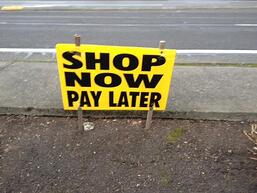 Sadly, when faced with the annoying and often
Sadly, when faced with the annoying and often 

 You do not have to put up with abusive debt collection practices.
You do not have to put up with abusive debt collection practices.
 Debt collector harassment can be stopped!
Debt collector harassment can be stopped!
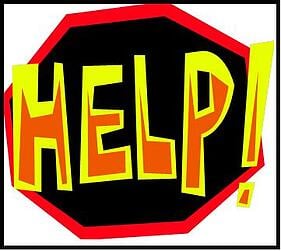 How can you Stop Debt Collector Calls?
How can you Stop Debt Collector Calls?

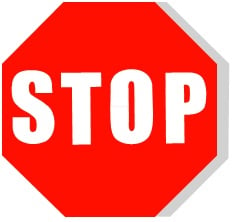
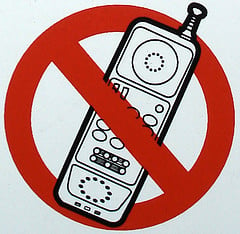 3 VERY IMPORTANT tips on how you can STOP COLLECTION CALLS:
3 VERY IMPORTANT tips on how you can STOP COLLECTION CALLS: